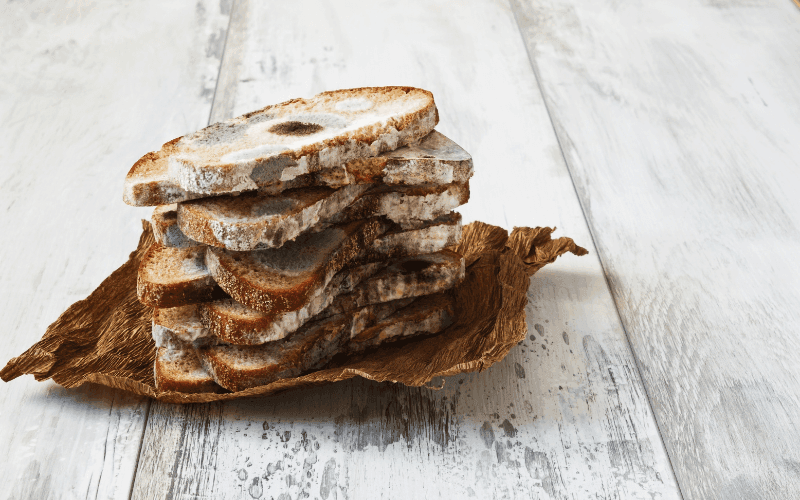How Clean Label Brands Can Improve Shelf Life and Cut Food Waste

Next-Generation Natural Preservation Solutions Enable Formulators to Create Foods That Stay Fresh Longer and Minimize Food Waste
America has a food waste crisis. It is astonishing that one-third of all food produced in the U.S. is unused and ends up in landfills. Food waste has far-reaching effects on society, including environmental and financial impacts. It costs Americans billions of dollars in lost revenue every year. Government agencies and consumers call for comprehensive solutions to tackle the food waste crisis.
Food loss and waste can occur throughout the supply chain, from farm to fork. Critical points in the supply chain where food waste can occur include farm, processing, packaging, transportation, storage, and retail. In fact, food loss at the farm level accounts for 30 to 40 percent of food waste, while food manufacturers contribute more than 10 percent, and grocery stores are responsible for about 30 percent of food waste.
Grocery stores and supermarkets in the U.S. account for a significant percentage of food waste, including spoiled and expired foods. According to USDA, for every dollar made from food sales at a retail store, two dollars are lost due to food waste.
Major Factors Contributing to Food Waste
Short shelf life and loss of organoleptic properties in products, from baked goods and refrigerated foods to meats and poultry, are major factors contributing to food waste in supermarkets. Color, taste, smell, and expiration dates are primary considerations. Retailers are known to dispose of foods they believe consumers would not want to purchase. Therefore, preserving the organoleptic properties of food and extending shelf life can help reduce food waste in retail. Manufacturers using clean-label preservatives can protect freshness and taste and keep foods fresh longer.
From a consumer perspective, food spoilage and food safety are the primary concerns. Purchasing decisions are often made based on expiration dates and perceived freshness. Perceived freshness is often associated with the sensorial properties of food, including color, taste, smell, and texture.
It is a little-known fact that 80 percent of people in the U.S. discard food that is still safe to consume because they misunderstand expiration labels. There is a difference between "sell by" and "use by" labels, and customers acting in a risk-averse fashion may discard food that is still safe to eat. The industry is calling on brands to add clarity to expiration date labeling. A clear understanding of expiration dates may help reduce food waste. In addition, manufacturers may take advantage of shelf life extension ingredients to protect freshness and taste, improve safety, and reduce food waste.
How Can Clean Label Brands Extend Shelf Life and Reduce Food Waste
While clean label and ‘free-from’ trends are top of mind among health-conscious consumers, food safety and shelf life extension are still important for food formulators. Extending shelf life and protecting freshness and taste can be achieved with natural and clean-label food protection solutions. A&B Ingredients offers natural solutions as part of its CytoGUARD® food protection portfolio, which includes natural plant extracts, antioxidants, and fermentation-derived ingredients.
What Consumers Think About Food Waste
According to Capgemini’s 2022 report, 61 percent of consumers want brands and supermarkets to do more to help reduce food loss and waste.
The COVID-19 pandemic highlighted various issues associated with food production and the supply chain. In addition, there is increased awareness and sensitivity around health and wellness and food safety. Consumers have developed a new appreciation for food safety, food quality, and overall sustainability. Product shortages and price inflation have led to an increase of families in the U.S. experiencing food insecurity. As a result, 72 percent of consumers are more conscious about the amount of food wastage, up from 33 percent before the pandemic. Consumers today want foods that stay fresh longer with an extended shelf life to avoid food waste.
What Manufacturers Can Do to Help Reduce Food Waste
Food manufacturers can meet the consumers’ demand for safer, more sustainable foods and address the U.S. food waste crisis by maintaining safety and extending the shelf life of their products. Extending the shelf life of foods means the product is safe to eat and stays fresh longer. Longer product shelf life allows retailers more time to store and sell products, while consumers have more time to consume foods before they expire. As a result, extending products’ shelf life can help reduce food waste.
A&B Ingredients has developed a line of plant-based solutions that harness the power of natural ingredients to protect foods from harmful spoilage bacteria and preserve the eating qualities of food.

CytoGUARD® plant-based solutions offer oxidation and spoilage control, yeast and mold control, and microbial inhibition. By using CytoGUARD® natural extracts and flavors, manufacturers can extend the shelf life of food products, delay product expiration dates, and reduce food waste, all while meeting the consumer demand for clean labels.
Products With Shorter Shelf Life
Some foods, like meat and dairy, are more susceptible to spoilage because their moisture allows bacteria to grow and multiply more quickly. Oxidative rancidity is another factor that can shorten the product’s shelf life. Lipid oxidation happens in products that have oils and fats. Oxidative rancidity causes a decline in the organoleptic properties of foods (color, smell, taste) and can make foods unsellable.
MEAT
A significant amount of meat is wasted due to spoilage at the retail level. One of the major reasons meats are disposed of is surface discoloration. As meat ages, it turns brown from oxidation. Bacterial spoilage, exposure to light, and microbial growth can also result in surface discoloration. Browning due to oxidation doesn’t mean the product has spoiled, but it can discourage the consumer from making a purchase.
Surface discoloration in meat, caused by oxidation, can be controlled using natural antioxidants. Adding a combination of natural antioxidants and natural preservatives can help meat producers maintain the product’s freshness and color, extend shelf life, and enhance the consumer experience with the product while reducing food waste.
BAKERY
Bakery products are prone to mold growth which limits the shelf life. Bakery products typically last 3-4 days at room temperature before spoiling. The shelf life of bread produced with the use of preservatives typically ranges from 16 – 30 days. While synthetic preservatives help keep bakery products fresh longer, the use of such ingredients is declining due to the growing consumer demand for clean-label products.
A&B Ingredients offers natural solutions for mold inhibition for bakers who want to extend the shelf life of their products to reduce food waste while following the clean label trend. Our natural plant extracts are highly effective at controlling mold and extending the shelf life of bakery products while helping bakers keep a short, consumer-friendly label.
DAIRY
Dairy products, like cheese and yogurt, are highly susceptible to mold growth and require refrigeration to maintain quality. During transportation and storage, dairy products are often affected by temperature fluctuations and would benefit from adding preservation ingredients to control spoilage and extend shelf life. Manufacturers can extend the shelf life of their products by preventing mold growth and oxidation using natural ingredients. Natural solutions are the ingredient of choice for dairy manufacturers looking to minimize food waste while meeting the consumer preference for natural, clean-label products.
Want to learn more? Talk with one of our food ingredients experts - contact us today.
How Can We Help?
We are here to help you with development of new and improved food products. Our technical service and sales teams can assist you in choosing the right ingredients best suited for your applications.
Product CatalogContact Us
